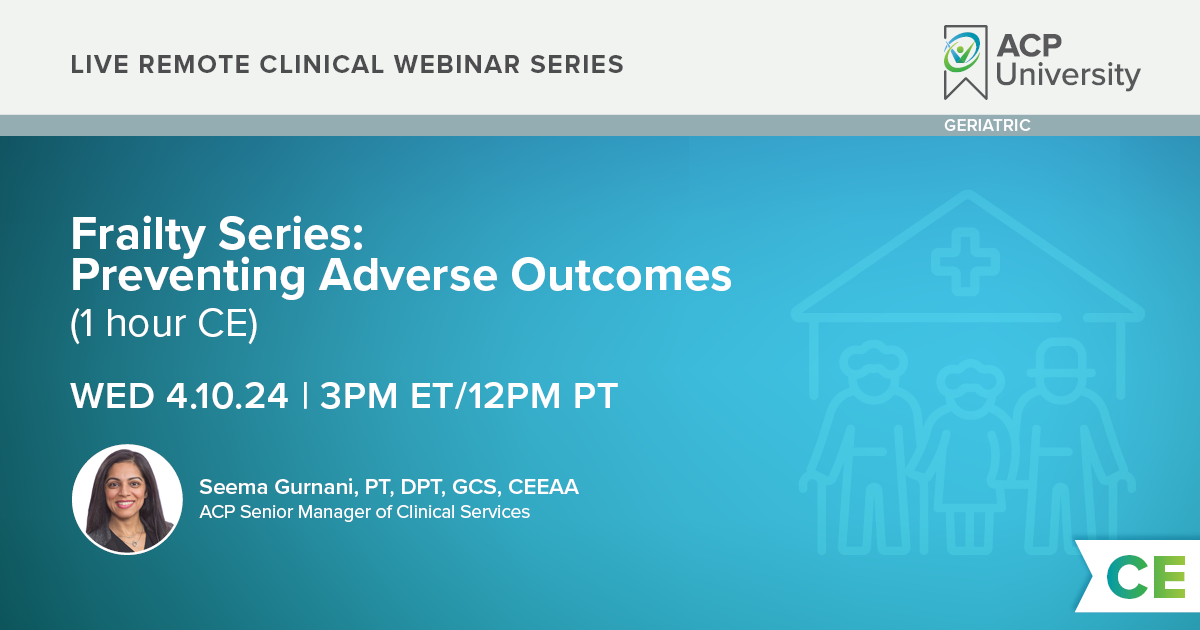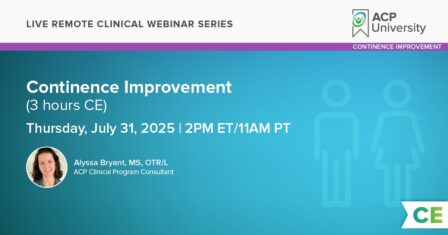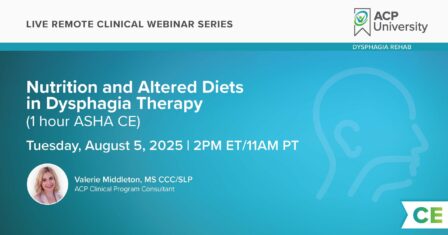Frailty Series: Preventing Adverse Outcomes

Date and Time
Location
Virtual Event
About this course:
This course provides an overview of available interdisciplinary team (IDT) best practice to improve quality of care and prevent adverse outcomes for frail older adults. IDT approaches include comprehensive geriatric assessment, evidence-based practice and best practice tools, expanded rehab services, strong communication among IDT members, and resident and caregiver education. Clinicians should be aware of unique patient goals in order to integrate timely palliative and hospice care as well as a comprehensive plan for transitions of care.
Instructor:

Enroll Now
Please note: You will not be able to register for webinars without an active
ACP University (LMS) account.
Existing Account
Auto-Enrollment
For the best experience, download the Adobe Learning Manager App and use the below QR code to automatically enroll anytime leading up to the start of the course.

Existing Account Enrollment Request
If you already have an account but can’t scan the QR code,
complete our form and we will add you to the course.
Requests must be received 24 hours prior to the course’s scheduled start.
ACP University Account Request
An active ACP University (LMS) account is required to register for this course. If you don’t have an account, please reach out to your Clinical Program Consultant for your facility-specific learner link. If you don’t recall who your CPC is, reach out to us at [email protected].
Related Events

July 31, 2025
This three hour course is intended to provide clinicians with the most current in-depth information with respect to normal and compromised continence, and its assessment and treatment using electro-stimulation, therapeutic exercise and ADLs.

August 5, 2025
Nutrition and Altered Diets in Dysphagia Therapy
This intermediate level course offered via National Webinar Series presents an overview of concepts regarding how altered diets may impact nutrition and overall health. The course reviews possible negative consequences to altered diets, physical consequences of malnutrition and diet-based interventions to achieve the most optimal nutrition and hydration outcomes.
